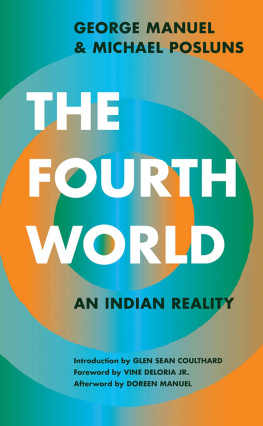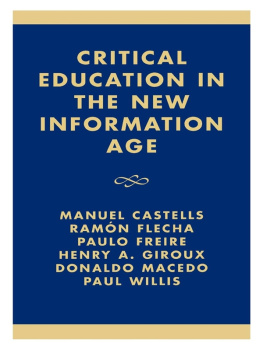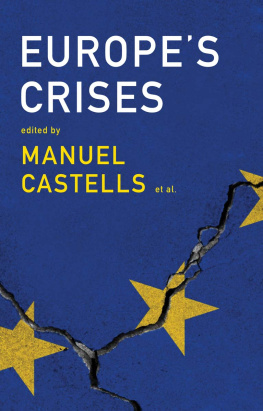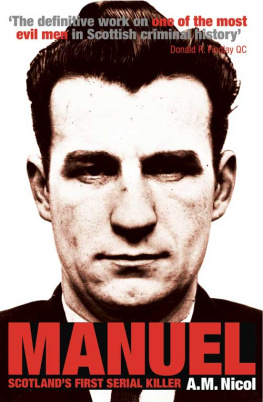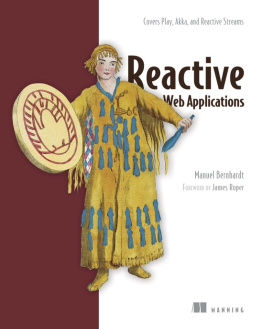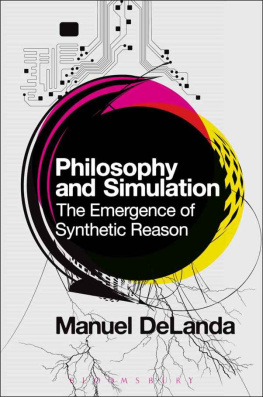Acknowledgments
When we first sat down to write our thanks, we realized that making a full list of our debts would result in an acknowledgments section as long as the book itself. More than most academic endeavors, this has been a well-supported enterprise: several funders, many colleagues, and an army of research assistants have contributed to the data and analysis that we offer here. But the real source of support has been not the usual academic and philanthropic suspects but rather all those in the social movements for regional equity that we describe in this volume. They are the subjects of our study, but they are also the actors who have provided us with guidance, challenged us with criticism, and inspired us with leadershipand so we start with our thanks to them.
For teaching us about how regional equity might scale to power via faith-based networks, we thank the Reverend Cheryl Rivera, Pat Jackson, Ponsella Hardaway, Vicki Kovari, Ana Garcia Ashley, Greg Galuzzo, Mike Kruglik, and Paul Sculley, as well as the Reverends Patrick Gahegan, Bart Beebe, Joseph Barlow, Kevin Turman, Patrick Johnson, and Cindy Reese; in the same vein, we offer profound appreciation to Bethel New Lifes Mary Nelson and Steven McCullough, partly for explaining the role of religious institutions and partly for questioning the very premises of our work.
For educating us about the role of labor in regional struggles, we thank Madeline Janis of the Los Angeles Alliance for a New Economy; Donald Cohen of the Center for Policy Initiatives; Kent Wong of the UCLA Labor Center; Leslie Moody of Partnerships for Working Families; Phaedra Ellis-Lampkins and Bob Brownstein of Working Partnerships USA; and Eric Parker, John Goldstein, Phil Neuenfelt, Sheila Cochran, and Bruce Colburn, all from various labor groupings in Milwaukee.
For getting us to think more carefully about the power of organizing and the issues of scale, we thank Anthony Thigpenn, Jennifer Ito, Sabrina Smith, and Elsa Barboza of SCOPE in Los Angeles; Gilda Haas of Strategic Actions for a Just Economy, also in Los Angeles; Juliet Ellis of Urban Habitat in Oakland; and Gihan Perera of the Miami Workers Center. For reminding us that building organizational capacity matters in regional equity, we thank Dwayne Marsh at PolicyLink for his reflections on ACTION! in Boston and Massachusetts, and Deborah Scott for sharing her time and vision for the new labor-community effort STAND UP! in Atlanta, Georgia.
For sharing key lessons with regard to the intersection of community development and regional equity, we thank James Head of the San Francisco Foundation; Alvertha Penny of the California Community Foundation; Anika Goss-Foster and Kari Sederburg (formerly of Detroit LISC); Jeremy Nowak and Pat Smith of the Reinvestment Fund; Miguel Garcia of the Ford Foundation; Denise Fairchild of the Community Development Technology Center; Rick Cole, city manager of Ventura, California; Katherine Perez of The Urban Land InstituteLos Angeles; Von Nkosi and Hattie Dorsey, both formerly with the Atlanta Neighborhood Development Corporation; and consultants (and so much more!) Rebecca Riley and Jim Gibsonadditional thanks to Jim for his thorough and thoughtful review of an earlier draft of this work.
For specific guidance with regard to implementing community-based regionalism on the ground, we thank Jaime Alvarado of Somos Mayfair, Allen Edson, James Tim Thomas, Margaret Gordon, and Rosalinda Palacios, formerly of the 7th Street/McClymonds Initiative of West Oakland; Will Mollard, Stewart Hyland, and Julio Garcia, formerly of One East Palo Alto; Ritchie Harrison, Maria Zardis, Gaylotta Murry, Pat Bosch, Anthony Williams, Denise Dorz, and Dora Mattuci from the Van Dyke8 Mile Collaborative in Detroit; and Sony Grant-Pierson, Jason Dietrick, Maggie DeSantis, and Charlie Mahony, all involved in the DetroitGrosse Point Park Collaborative. For helping us see the intersections of regionalism and environmental justice, we thank the South east Los Angeles Regional Environmental Justice Collaborative (Communities for a Better Environment, East Yard Communities for Environmental Justice, Coalition for a Safe Environment, Comit Pro Uno, and the Liberty Hill Foundation), and all the member organizations of the Bay Area Environmental Health Collaborative.
For helping us understand the role of business in regional equity partnerships, we thank Doug Henton and John Melville of Collaborative Economics; Kim Walesh of the City of San Jose; Sunne McPeak (formerly of the Bay Area Council); Brian Bosworth of FutureWorks; the late Nick Bollman of the California Center for Regional Leadership; Mark Pisano of the Southern California Association of Governments; Ben Starrett of the Funders Network for Smart Growth and Livable Communities; and Julia Taylor in Milwaukee.
For helping us see how all the strands of regional equity can come together, we thank the participants in the Ford-sponsored Conversation on Regional Equity: Angela Glover Blackwell of PolicyLink, Amy Dean of Building Partnerships USA, Cynthia Duncan of the Carsey Institute, Mary Gonzalez of the Gamaliel Foundation, Bart Harvey (formerly of the Enterprise Foundation), Heeten Kalan of the New World Foundation, Bruce Katz and Alice Rivlin of the Brookings Institution, john powell of the Kirwan Institute at Ohio State, and the very independent (and independent-minded) David Rusk.
For their academic advice and (sometimes gentle, sometimes not) critiques along the way, we thank Peter Dreier and Bob Gottlieb of Occidentals Urban and Environmental Policy Institute; Myron Orfield of the Institute for Race and Poverty; Margaret Weir of UC Berkeley; Rolf Pendall and Susan Christopherson of Cornell; Phil Thompson and Xavier Briggs of MIT; and Jackie Leavitt, Paul Ong, and Abel Valenzuela of UCLA. Our most profound thanks in this regard go to Robert Kleidman of Cleveland State University and Todd Swanstrom of St. Louis University; their careful reviews of an earlier draft greatly influenced our thinking. Although we suspect that we could have achieved an even better reworking of the book had we simply turned the task over to them, we hope this final version meets the high standards they both sought and expected.
For research assistance in this project, we thank Rachel Rosner, Julie Jacobs, Miranda Schirmer, Javier Huizar, and Justin Scoggins of the Center for Justice, Tolerance and Community (CJTC) at UC Santa Cruz; Jennifer Tran, Jennifer Renteria, and Vanessa Carter of the Program for Environmental and Regional Equity at USC; and consultant Serena Lin. For managing our budgets and staff with a combination of good cheer and ruthless efficiency, we thank Susan Welch of CJTC; Susan also helped with editing and organizing various versions of the manuscript, never (well, almost never) complaining about the odd mix of writing styles, citation formats, and even theoretical frameworks.
Sources of funding for this endeavor included the Hewlett Foundation, which supported our work with three neighborhood initiatives in the Bay Area (from which we learned about the challenges of making region-community links), and the MacArthur Foundations Building Resilient Regions project (from which we learned to think about regional equity as embedded in a broader set of issues that regions must confront to succeed). The primary and most important source of funding, however, was the Ford Foundation, an institution that has shown a strong commitment to developing this field as a new way to think about community development. Among supportive people there, we specifically thank Pablo Arias, Melvin Oliver (now at UC Santa Barbara), and Susanne Siskell.




